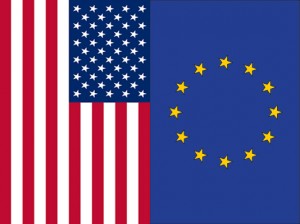 Major unions in the U.S. and Europe have written US Trade Representative Al Froman and EU Director General for Trade Karel de Gucht, warning against provisions in the Trans Atlantic Trade and Investment Partnership (TTIP) and Trans Pacific Partnership (TPP) that could “needlessly burden national health systems and increase the costs borne by patients.”
Major unions in the U.S. and Europe have written US Trade Representative Al Froman and EU Director General for Trade Karel de Gucht, warning against provisions in the Trans Atlantic Trade and Investment Partnership (TTIP) and Trans Pacific Partnership (TPP) that could “needlessly burden national health systems and increase the costs borne by patients.”
The December 12 letter, signed by the AFL-CIO, ITUC and ETUC, warns against rules that would establish international norms that favor branded manufacturers in drug price negotiations with government agencies that purchase or reimburse for medicines: “Under a ‘transparency and procedural fairness’ clause, drug and device manufacturers acquire the ‘right’ to appeal decisions of other countries’ health authorities regarding the value of the patented pharmaceutical product or medical device and demand an increased amount of reimbursement. Yet the process fails to require consideration of 1) strains to a country’s health care budget; 2) whether a new drug or device offers only a marginal improvement or no improvement at all over clinical outcomes of existing products or processes used to treate the same condition; or 3) the views of patients, medical professionals, or public health advocates.”
Leaked pharmaceutical pricing provisions in the TPP have attracted previous criticisms from academics (including Lopert and Gleeson and Flynn); government officials (including VT Gov. Peter Shumlin and ME state Rep. Sharon Treat), and more recently the AARP and U.S. labor and consumer groups.
TTIP negotiations offer the U.S. a trade lever to help establish new drug-pricing norms in the European Union – something US officials have been trying to achieve through other means. USTR writes in most recent National Trade Estimate Report (NTE) on Foreign Trade Barriers that the U.S. government “continues to engage with the EU and individual Member States” over pricing policies. It states that “the U.S. pharmaceutical industry has raised concerns about pharmaceutical market access and government pricing and reimbursement systems in Austria, Belgium, the Czech Republic, Finland, France, Germany, Hungary, Lithuania, the Netherlands, Poland, Portugal, Romania, Spain, and the United Kingdom.” More details on U.S. concerns in each country are available in USTR’s full NTE Report.




